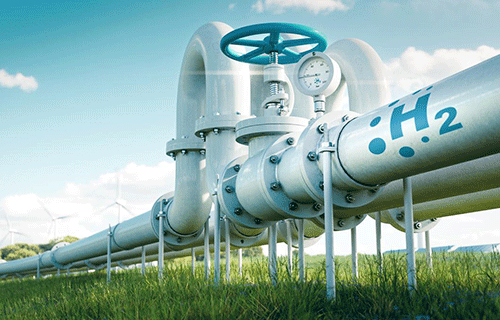Mines and energy minister Tom Alweendo says Namibia is one of the front-runners in becoming a continental green hydrogen hub.
In this respect, he has invited potential investors to seize the opportunity that intends to make Namibia self-sufficient in terms of energy generation to supply the remaining electricity to the rest of southern Africa.
Alweendo said when it comes to the African continent, especially Sub-Saharan Africa, the continent is associated with negative attributes – either underdevelopment or poverty.
“This narrative completely ignores the strengths and resilience of the African people. The result of this misconception about us is that as a member of the global communities, our voice is not always heard; consequently, we have not been able to take our rightful place as a respected voice of the global community – a voice that deserves to be heard,” said Alweendo virtually during the Voice of Global South Summit.
The Voice of Global South Summit, themed ‘Unity of Voice, Unity of Purpose’, envisages bringing together countries of the Global South to share their perspectives and priorities on a common platform.
Alweendo added: “We have found it unreasonable when some countries and global individuals try to dissuade Africa from leveraging some of its natural resources. They suggest and at times demand that we give up our fossil for energy resources. They press us to as soon as possible switch to clean renewable energy sources, such as wind and solar – and that it is for our good.”
The mines and energy minister noted this perception needs to be addressed, as it could potentially lead to loss of economic opportunities and greater difficulties in delivering raw electricity to hundreds of millions of Africans.
He, thus, called for a just energy transition and laid out Namibia’s vision and strategy, encompassing traditional energy sources, renewables and emerging technologies, such as green hydrogen.
He stated that one of the most significant reasons Africans must insist on a just transition is that the continent suffers from acute energy poverty, where more than 600 million people in southern Africa do not have access to reliable electricity.
“As African countries who need a reliable energy supply to provide light to our people and also lift them out of poverty, the good news is we have started to recognise that instead of exporting our natural resources, like gas, we can and should also first use it to meet our domestic needs,” Alweendo stated.
Namibia, through TotalEnergies and Shell, recently discovered oil and gas.
Additionally, Namibia has been developing a fledging green hydrogen industry for the past year and a half, which is an attractive investment option for global investors to get on the bandwagon.
India on Thursday hosted its first summit of developing countries from Asia, Africa and South America, bringing together the perspectives and priorities of issues shared by what is collectively called the Global South.
Indian High Commissioner to Namibia Prashant Agrawal said they are acutely aware of the multiple challenges faced by us, especially in developing countries, due to geopolitical developments across the globe.
“When it comes to global governance, it has become more important than ever that the voice of developing countries is fully factored into global decision-making and working out the way forward,” echoed Agrawal.
He added that Namibia, India and other like-minded countries have stood together in putting forward the development narrative forcefully – and the summit was an important platform to help shape a common future together.
On the same occasion, India’s prime minister Narendra Modi called for globalisation that brings well-being and prosperity to humanity as a whole.
He added that India will establish a global south centre to research development solutions of the countries to be scaled up and applied in other members of the global south.
– psiririka@nepc.com.na


